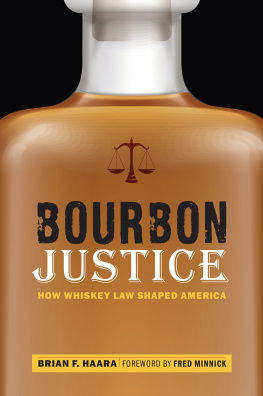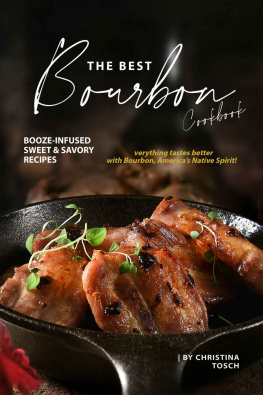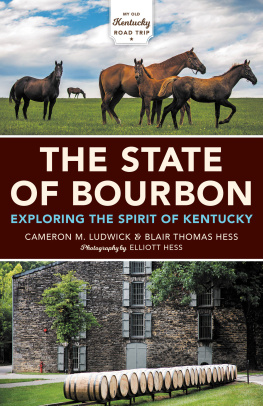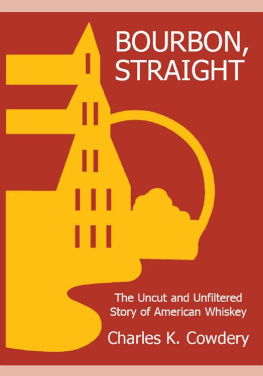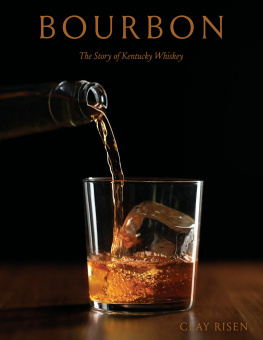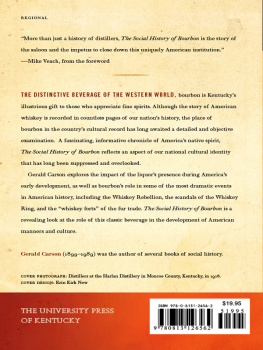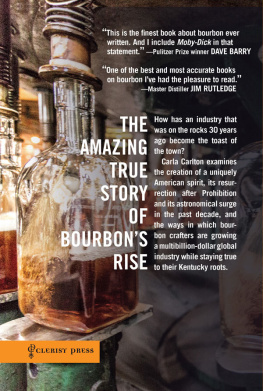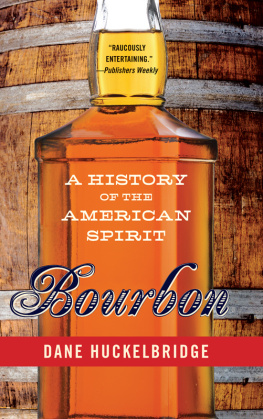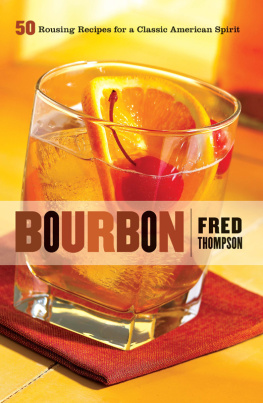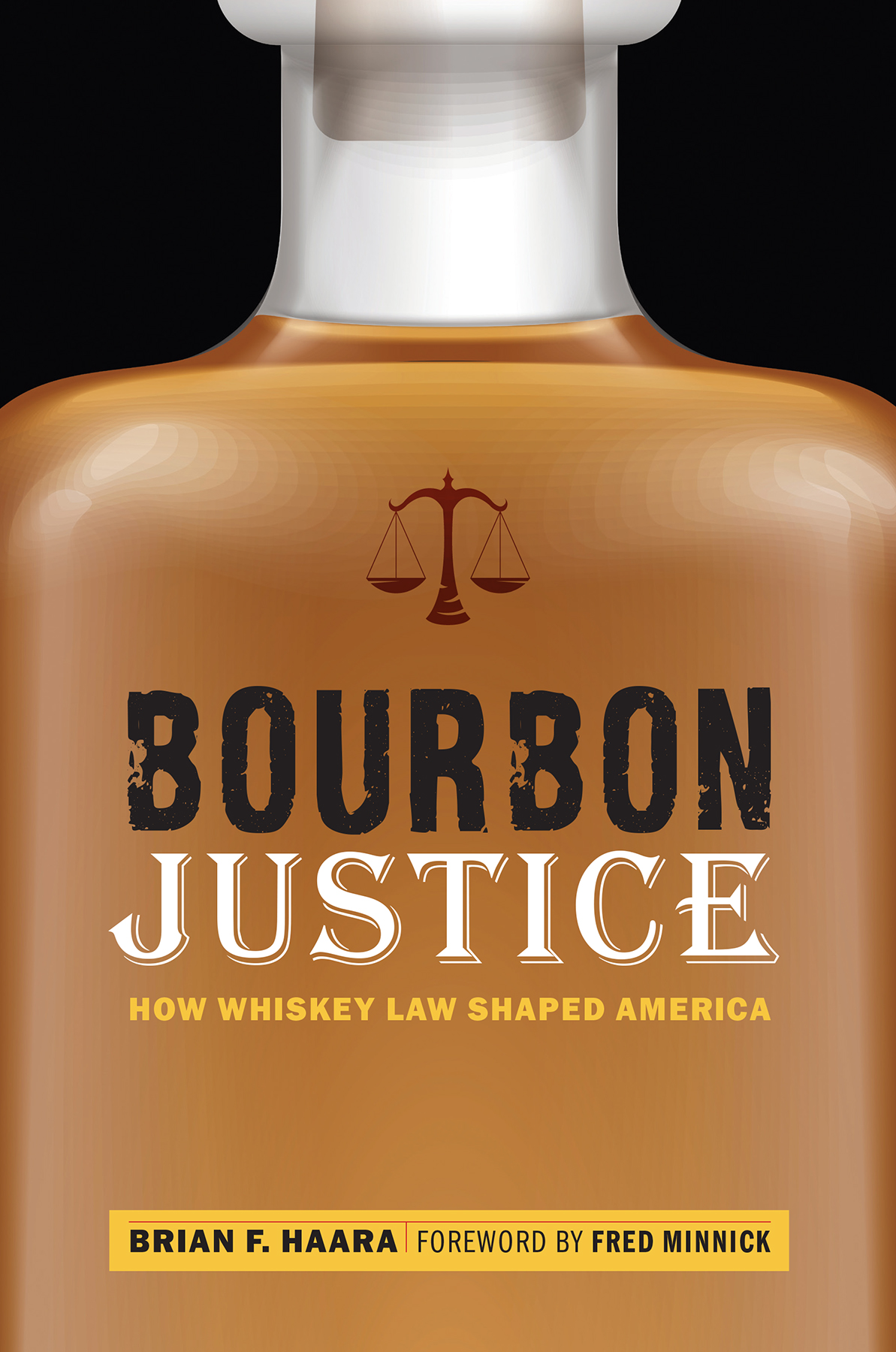
Bourbon Justice uses a groundbreaking approach to tell the history of the bourbon industrythe lawsuits that provide the true origin stories of famous brands. I believe this book will quickly become a classic work in the field of bourbon history and of distilled spirits as a whole.
Michael Veach, bourbon historian, scholar, and author of Kentucky Bourbon Whiskey: An American Heritage
I teach people all over the world that words on an American whiskey label mean something. Brian Haara brings to life the laws like the Bottled in Bond Act of 1897 that make American whiskey so spectacular. I cant get enough!
Bernie Lubbers, American whiskey ambassador for Heaven Hill Distillery and author of Bourbon Whiskey: Our Native Spirit
The subtle, dry wit of Haaras book makes a crisp argument. It turns out that dusty lawsuits are a perfect way to explore the heritage of both our nation and its spirit.
Reid Mitenbuler, author of Bourbon Empire: The Past and Future of Americas Whiskey
Bourbon Justice
How Whiskey Law Shaped America
Brian F. Haara
Foreword by Fred Minnick
Potomac Books
An imprint of the University of Nebraska Press
2018 by Brian F. Haara.
Foreword 2018 by the Board of Regents of the University of Nebraska.
Cover designed by University of Nebraska Press; cover image: bottle iStock/ivalet; scale 123rf/Cihan Demirok.
All rights reserved. Potomac Books is an imprint of the University of Nebraska Press.
Library of Congress Cataloging-in-Publication Data
Names: Haara, Brian F., author.
Title: Bourbon justice: how whiskey law shaped America / Brian F. Haara; Foreword by Fred Minnick.
Description: Lincoln: Potomac Books, an imprint of the University of Nebraska Press, 2018. | Includes bibliographical references and index.
Identifiers: LCCN 2018006600
ISBN 9781640120853 (cloth: alk. paper)
ISBN 9781640121294 (epub)
ISBN 9781640121300 (mobi)
ISBN 9781640121317 (pdf)
Subjects: LCSH : Liquor lawsUnited StatesHistory. | Bourbon whiskeyUnited StatesHistory.
Classification: LCC KF 3924. W 45 H 33 2018 | DDC 344.7305/41dc23 LC record available at https://lccn.loc.gov/2018006600
The publisher does not have any control over and does not assume any responsibility for author or third-party websites or their content.
Dad, I wish that we could share another bourbon
Contents
Fred Minnick
Whiskey runs deep in our countrys history.
It joined our troops on the field of battle, as Gen. George Washington made sure his soldiers had ample amounts for medicinal purposes. Many of those soldiers were whiskey makers, as was Washington, who, after winning the Revolutionary War, opted to tax distillers to pay for war debts. Naturally, many distillers cared not for this tax. And they did what all good 1790s protesters did: they tarred and feathered the oppositiona taxman. That led to the Whisky Rebellion, in which Washington federalized soldiers to thwart tax-hating whiskey rebels.
That wasnt the only time whiskey enters fabric of government and society.
When President Thomas Jefferson took office, he repealed the whiskey tax and later signed the Louisiana Purchase, opening the door to trade for distillers, who built empires in Kentucky. Bourbon distillers created one of Americas first true industries, establishing jobs and dictating government regulation, such as the Bottled-in-Bond Act of 1897, Pure Food and Drug Act and the 1964 congressional declaration that gave bourbon its de facto moniker Americas Spirit. Presidents Lincoln, Grant, Cleveland, Taft, Roosevelt, Kennedy, and Obama have benefited from the ever-growing bourbon business and helped establish bourbon law and popularity.
Whether you realize it, bourbon has influenced your life, too, through taxesabout 60 percent of every bottle goes to taxes; through branding, before Nike and McDonalds, bourbon branded themselves as Old Crow, Old Taylor, and Old Grand-Dad; and the courtroom, as we learn in this brilliant tome, Bourbon Justice.
In past bourbon histories, including my own, authors typically cover the men and women behind the brands, legislative hallmarks, and the occasional lawsuit. Longtime bourbon blogger and attorney Brian Haara covers it all through the courtroom, a fascinating place to study the American perspective of anything.
When business titans expand, create value, and innovate, they eventually sue one another.
Yeah, thats kind of the American way: land of the free, home of the brave and the litigious. As one of the countrys first true industries, bourbon apparently played a much larger role in our court system than we had previously known. In Bourbon Justice Haara rips open the legal continuum and shows bourbon set precedent in all sorts of legal drama.
From the moment bourbon became popular, brands found themselves crossing into the courtroom, arguing trademark rights, property complaints and criminal activity. In writing several bourbon books, I found lawsuits to be a great source of information. But admittedly, Im not a lawyer and sometimes didnt know the merits or significance of these cases outside of bourbon.
With its focus on an industry so entrenched in nepotism, Bourbon Justice studies a common problem in American business: what happens when a family member breaks away from the business to start their own company? Turns out, bourbon provided early arguments for both sides in this issue that comes down to previous agreements and what was previously allowed under the name. If you want to use your family name to start your own business, you may want to use the Dant argument, offering evidence your name is you and can be unique enough to not confuse consumers. Or if you want to protect your family name from family members, you may consider the Whiskey Trusts unfair trademark infringement argument after it purchased the Wathen name and brands and then sued the Wathens when they turned around and started R. E. Wathen & Company.
The book is filled with fascinating tidbits, such as the many lawsuits between George T. Stagg and E. H. Taylor, two iconic names that shaped the bourbon world. From the Churchill Downs lawsuit, where the famous racetrack sued the attempted Churchill Downs Distilling Company, to the Makers Marks red dripping wax case, in which a judge ruled nobody else should use a red dripping wax in alcohol, Haara masterfully intertwines bourbon law with the bourbon culture and mainstream courts. Did you know that bourbon law set the framework for a current-day lawsuit involving Victorias Secret? Or that 1800s-era bourbon trademark disputes helped shape the trademark laws of America?
Like judges in between cases, Haara pours into a good bourbon to break up the legal briefings. I highly recommend sipping on the elixir he recommends to see if they pair well with the American legal system.
Of course, this isnt a tasting guide per se or a cocktail lifestyle book. Its an important bourbon history book that skews part scholarly effort, part narrative, and all bourbon.
But let me be clear: I cannot express how important this book is to bourbon history. We have needed this book.
As bourbon becomes more popular, we see more fluff and marketing passed off as history. Independent works like Haaras protect the true, unbiased identity of bourbon and offer us real depictions of Americas spirit. Bourbon, now intertwined in our lives, has reached epic status of Americana, and the brands are as much ours as they are the companies who own them. We garner special affection for the category, travel long distances to hear distillers speak, and are willing to stand in long lines to get our favorite brands. Youll find many fans who permanently tattoo their favorite brands on their bodies or name their firstborns after distillers.
Next page
